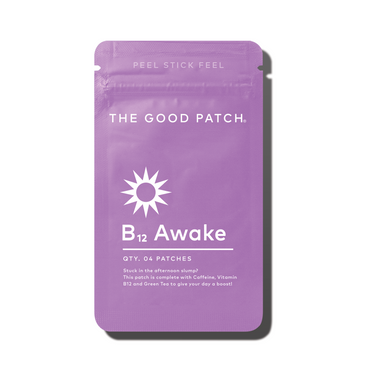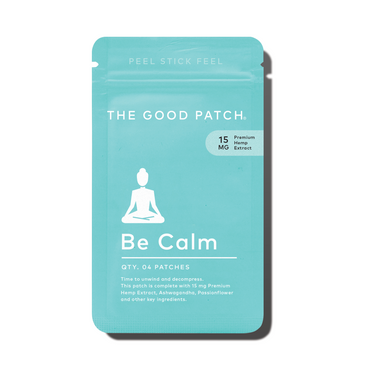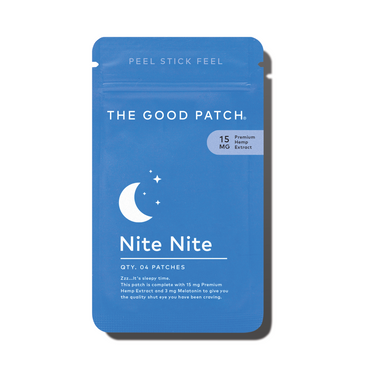Tossing. Turning. Glancing at the clock every five minutes, feeling the weight of fatigue but being denied the comfort of sleep. We've all been there. That exasperating moment where you're drained but can't drift into the calm embrace of slumber.
Quality sleep is not just a luxury — it's a pillar of health akin to proper nutrition and regular exercise. Yet, for many, it remains elusive.
We've curated a list of tips rooted in both tradition and innovation to guide you back to those peaceful nights.
1. The Power of Ritual
A good night's sleep often starts long before our heads hit the pillow. Cultivating bedtime habits is less about rigid routines and more about setting clear signals for your body. Simple actions like reading, focused breathing, or sipping a warm, caffeine-free drink can tell your body, "Hey, it's time to wind down."
By being consistent with these habits, you're essentially training your body to recognize the cues for sleep. It's straightforward, backed by science, and just feels good. Over time, these habits become second nature and the result? Better sleep, consistently.
2. Boost Your Slumber With Plant-Powered Patches
Navigating the path to peaceful sleep sometimes requires an extra touch of nature's magic. Our melatonin sleep patch — a wearable slice of tranquility — harnesses the power of plant-powered ingredients. Infused with Melatonin, Hops, and Valerian Root, it brings together some of the most trusted elements known to lull you into the sleep of your dreams.
This wellness patch is not just a trendy accessory — it's rooted in science and designed for those nights when all you desire is a deep beauty rest, uninterrupted travel sleep, or even just a wholesome nap. Trust in nature, wear it on your skin, and let the restful moments unfold.
3. Create a Sleep-Conducive Environment
Think of your bedroom as a sanctuary — a haven designed for rest. Achieving this requires creating an environment that's dark, quiet, and cool.
Darkness triggers the brain to produce melatonin, the sleep hormone, so blackout curtains can be invaluable. Meanwhile, if your surroundings are particularly noisy, consider using earplugs or a white noise machine to create a soothing auditory backdrop.
Temperature, too, plays a role. Many sleep experts recommend setting your thermostat to around 65°F (18°C) for optimal rest. By making these simple adjustments, you're setting the stage for an uninterrupted, deep sleep.
4. Digital Detox Before Dusk
Screens are sneaky sleep disruptors. The blue light emitted from phones, tablets, and computers can interfere with melatonin production, our body's natural sleep-inducing hormone.
It's not just about reducing screen time but about being intentional. Commit to switching off devices or using "night mode" settings an hour before bed.
This small change can recalibrate your internal clock, ensuring the digital world doesn't intrude on your dream world.
5. Bathe Your Way to Better Sleep
Water has an innate ability to soothe the soul. A warm bath is a ritual that relaxes tense muscles and calms the mind. And for an added touch? Integrate our sleeping patch into your post-soak routine.
Infused with 15mg Premium Hemp Extract and Melatonin, by the time you step into the dreamland, the patch has already set the stage for a dreamy evening.
6. Breathe Deep, Sleep Sound
Mindful meditation and deep breathing aren't just buzzwords — they're tools for tranquility. Taking a few minutes to focus on your breath, feeling the rise and fall of your chest, can shift your mindset from frantic to peaceful.
Overthinking and nighttime anxiety fade, replaced by a centered calm that paves the way for restful sleep.
7. Comfort Is King
Remember the tale of the princess and the pea? While we're not royalty, the sentiment stands: a comfortable sleep setup matters. Investing in the right mattress and pillows ensures your body gets the support it needs. It's about luxury and alignment — keeping your spine in check and ensuring your body is evenly supported.
From memory foam wonders to ergonomic pillows, finding your fit can transform those restless nights into revitalizing sleep.
8. Nix the Nighttime Nibbles
While a small snack might not hurt, diving into a late-night feast can disrupt your sleep cycle. Heavy or spicy foods can lead to discomfort and indigestion, keeping you awake when you'd rather be dreaming.
Instead, opt for light, sleep-promoting snacks if you're genuinely hungry — think a banana or a small serving of almonds. These foods contain magnesium, which can act as a natural relaxant.
9. Tune Into Tranquil Tunes
Music has a profound effect on our mood and state of mind. Gentle, calming tunes or even the rhythmic sound of waves can lull you into a peaceful slumber. It's not about blasting your favorite hits; it's about selecting the soundtrack for a serene evening.
Consider playlists or apps designed specifically with sleep in mind — they've done the hard work of curating the right tempo and tone to send you off to dreamland.
10. Stay Consistent With Sleep Schedules
Your body loves routine, especially when it comes to sleep. Try to go to bed and wake up at the same time every day — even on weekends. It might sound a tad rigid, but by sticking to a consistent schedule, you reinforce your body's sleep-wake cycle.
Over time, you might even naturally wake up without an alarm, feeling refreshed and ready to tackle the day. Remember, consistency is key, and in the realm of sleep, it's your ticket to more restful nights.
A Final Word
At The Good Patch, we believe sleep is the ultimate self-care. Our curated tips blend science and soul, offering you pathways to peaceful nights.
Your journey to restful sleep isn't a solo endeavor; we're with you every step. Embrace these habits, find your rhythm, and remember that every night is an opportunity to recharge and renew.
Sweet dreams and happy resting from our family to yours.
Sources:
How to Build a Better Bedtime Routine for Adults | Sleep Foundation
Bedroom Environment: What Elements Are Important? | Sleep Foundation
4 Benefits of Sleep Meditation and How To Do It | Cleveland Clinic
The Best Temperature for Sleep: Advice & Tips | The Sleep Foundation







